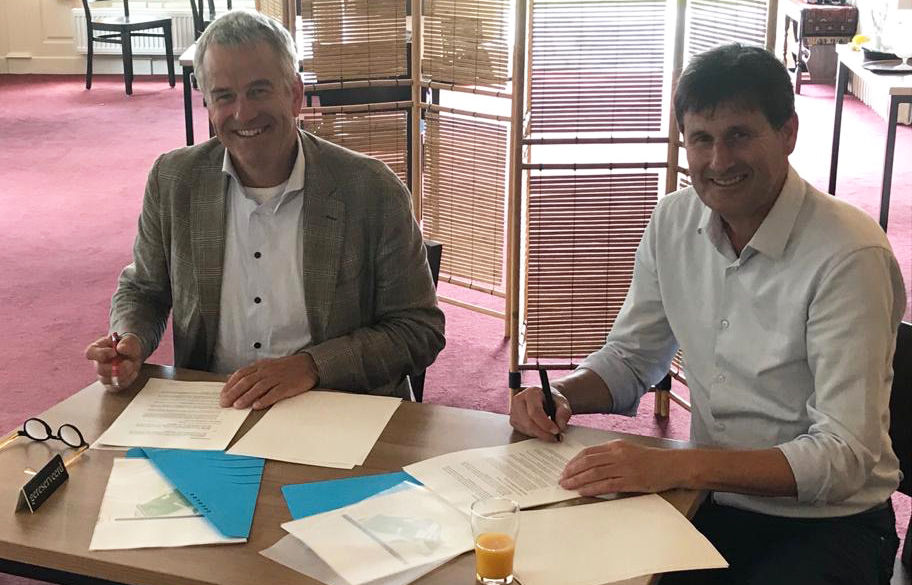Casing soils for mushroom production
Klasmann-Deilmann and Dutch Forestry Administration sign contract
Klasmann-Deilmann Benelux has secured long-term distribution rights for so-called casing soil * used in the production of mushrooms. “This will strengthen our position in an important segment of the food industry,” says Moritz Böcking, Managing Director of the Klasmann-Deilmann Group. Significant quantities of these raw materials should be available by the turn of the year 2020/2021 at the latest. The contractual partner in the project, which will run for several years, is the Dutch company Energiehout B.V., a subsidiary of the State Forestry Administration.
Since 2019, the Dutch Forestry Board Staatsbosbeheer has been preparing a nature development project near Breda. In order to create additional flooding areas for the rivers on the border with Belgium, the banks near Weimeren are to be lowered and a deeper river bed created. These measures are expected to have positive effects on regional biodiversity.

A look into the future of the Weimeren landscape development project.
The development of the 200ha floodplain will necessitate the removal of lowland peat, which is of interest to the mushroom industry. “We have tested the raw material for its suitability as casing soil,” reports Ted Vollebregt, Managing Director of Klasmann-Deilmann Benelux. “A balanced mixture with German black peat results in an excellent product for mushroom production.” Unlike comparable raw materials, Dutch lowland peat requires neither frost nor drying. Nevertheless, quality assurance is of great importance. “To ensure marketing and customer satisfaction, the raw material has been certified according to RHP standards, which include comprehensive and strict quality criteria.” Furthermore, specifications for the processing of the raw material are closely coordinated with the commissioned service company Den Breejen.
“Our substrates and casing soils are indispensable in the international food industry. We supply just under half of our products to nurseries that cultivate fruit, vegetables, herbs and edible mushrooms. Healthy food is of central importance for our company,” explains Moritz Böcking. “We are very pleased to be able to use local raw materials for the food industry and to contribute to an important environmental protection project in the Netherlands”.

Zwier van Olst, Managing Director of Energiehout B.V. (left), and Ted Vollebregt, Managing Director of Klasmann-Deilmann Benelux B.V. (right), sign the contract.
* So-called casing soils are among the most important resources in mushroom production. They consist mainly of highly decomposed peat raw material. For the production of mushrooms, special composts are first laid out on large areas in the farms, consisting of straw and horse manure, for example, and are inoculated with mushrooms. A layer of the casing soil about seven centimetres thick is spread out over the compost and the mushroom penetrates it. The fruiting body of the edible mushroom finally forms on the surface.